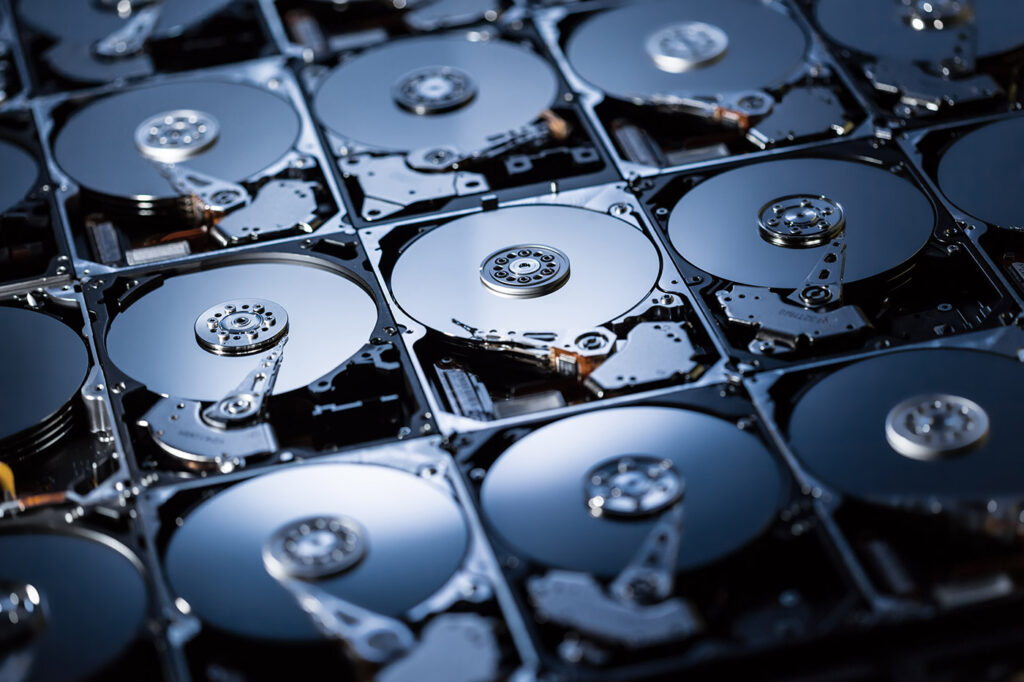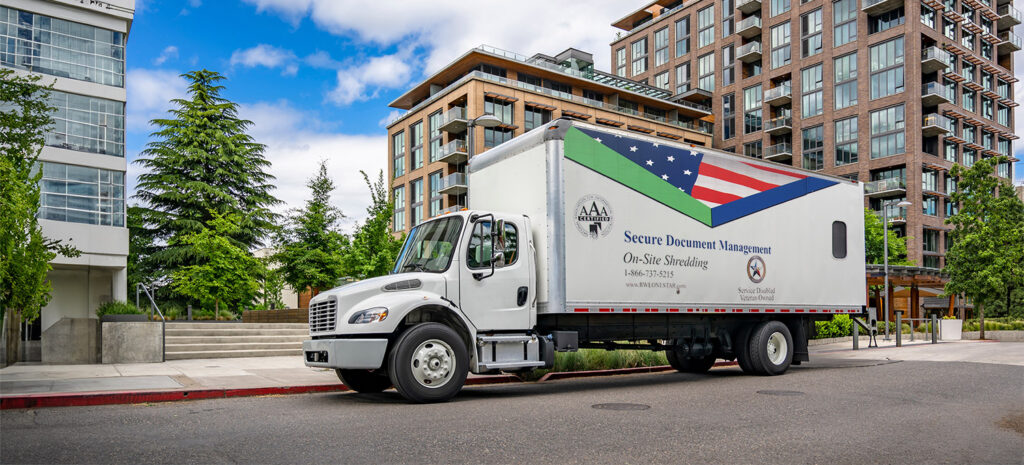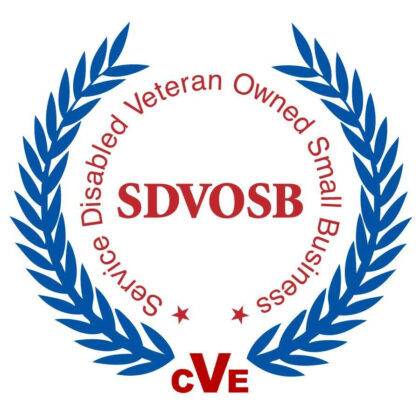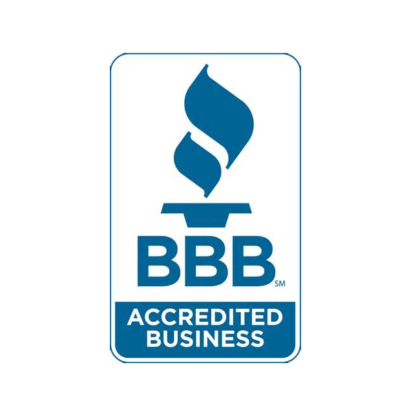What is Hard Drive Shredding?
Hard drive shredding is the process of physically destroying a hard drive to ensure that its data is permanently inaccessible. This isn’t just breaking it with a hammer or tossing it in the trash—shredding involves specialized machinery that cuts drives into tiny, unreadable fragments.
Whether you’re upgrading your company’s tech or cleaning out old equipment, securely destroying outdated hard drives is crucial. Even when files are deleted or a drive is wiped clean, sensitive information can often still be recovered. That’s why a secure, physical destruction method like shredding is the gold standard.
Hard drive shredding works by feeding drives into industrial shredders that pulverize them into pieces small enough to prevent data recovery. Many services offer mobile shredding, which brings the shredder directly to your location for extra convenience and security. This ensures your data never leaves your sight until it’s destroyed.
The importance of shredding goes beyond compliance. It protects you, your clients, and your reputation from data breaches. When it comes to security, there’s no room for shortcuts, and shredding is one of the most effective ways to destroy data on a hard drive permanently.
The Benefits of Shredding Hard Drives
Protects Your Sensitive Data
Hard drives store a wealth of information—personal, financial, and confidential business records. If not properly destroyed, old drives can be a treasure trove for hackers or data thieves.
Shredding ensures that the data cannot be recovered, protecting your company from breaches that could lead to legal or financial consequences. A secure shredding process goes beyond software-based data wipes, offering you peace of mind that your data is gone for good.
By destroying drives completely, you’re not only safeguarding your sensitive information but also preventing misuse of client and employee data. Trust and reputation hinge on your ability to handle sensitive information responsibly, and shredding is a simple way to reinforce that trust.
Helps with Legal Compliance
Many industries are governed by strict data protection laws like HIPAA, GDPR, or CCPA. Improper disposal of hard drives could lead to hefty fines or even lawsuits.
Shredding hard drives ensures you’re meeting compliance requirements by securely destroying old records and customer data. Many shredding services provide documentation, such as certificates of destruction, as proof that you’ve followed proper disposal protocols.
Failing to comply with regulations isn’t worth the risk. A shredding service helps you navigate these rules with confidence, ensuring your compliance strategy is both practical and secure.
Environmentally Responsible
When you shred hard drives, you’re not just protecting your data—you’re also doing your part for the planet. Many shredding services partner with recycling programs to ensure the destroyed materials are handled responsibly.
Shredded hard drives are broken down into components like metals and plastics, which can often be recycled into new products. This minimizes waste while keeping harmful materials out of landfills.
Choosing a service that focuses on eco-friendly practices ensures your business contributes to sustainability goals while staying secure. It’s a win-win for security and the environment.
Prevents Data Recovery
Even if you delete files or format a hard drive, traces of data often linger. Sophisticated recovery tools can retrieve this information, making traditional disposal methods risky.
Hard drive shredding removes this possibility entirely. Once a drive is shredded, the pieces are too small and scattered for even the most advanced recovery techniques. This makes shredding the safest option when you need absolute certainty.
Whether you’re a small business or a large corporation, preventing data recovery should always be a priority. Shredding ensures you eliminate this risk once and for all.
Offers Convenient Options
Many shredding services offer mobile hard drive destruction. These on-site services bring shredding equipment directly to your location, allowing you to witness the process in real time.
This eliminates the need to transport sensitive data elsewhere, reducing the risk of a breach during transit. Mobile shredding services are quick, efficient, and tailored to meet the specific needs of businesses.
Some providers even handle bulk destruction, which is especially useful for companies upgrading their technology or managing large-scale cleanouts. Convenience doesn’t have to come at the cost of security—shredding offers both.
Can Shredding Old Drives Benefit Your Company?
When you think about business assets, hard drives probably don’t top the list. But underestimating their value—and the risks associated with them—can be a costly mistake. Shredding old drives can provide unexpected advantages for your company.
First, it protects your intellectual property. Hard drives often contain blueprints, proprietary data, or sensitive financial information. A single breach could cost millions in damages, not to mention the hit to your reputation. Shredding old drives eliminates this threat.
Second, shredding demonstrates a commitment to client confidentiality. Customers expect their data to be handled responsibly, and a transparent destruction process reassures them that their information is safe. This trust can boost loyalty and improve your brand image.
Third, it keeps you compliant with data protection regulations. Businesses that mishandle data can face penalties, but shredding ensures you meet legal requirements and avoid fines. It’s a proactive way to handle potential risks.
Finally, shredding old drives supports operational efficiency. Instead of spending time and resources on DIY disposal methods, you can rely on a professional shredding service. This allows you to focus on what you do best: running your business.

How to Evaluate When You Should Shred Old Hard Drives

Determining when to shred old hard drives isn’t always straightforward. But there are a few scenarios where shredding is a must.
If you’re upgrading your technology, consider shredding the old drives immediately. Keeping them around, even temporarily, increases the risk of unauthorized access. When equipment reaches the end of its lifecycle, secure disposal should be part of the process.
Another trigger is regulatory compliance. Many industries have specific timelines for retaining and destroying records. If a drive’s data retention period has expired, it’s time to shred it to avoid penalties.
Hard Drive Shredding is also a good idea during mergers, acquisitions, or office relocations. These transitions often involve cleaning out old assets, and it’s critical to ensure no sensitive information gets overlooked.
Finally, look for warning signs of potential misuse, such as misplaced or unaccounted-for drives. If you can’t track a drive’s whereabouts, it’s safer to shred it than to risk a data breach.
Five Common Mistakes Companies Make When Destroying Old Hard Drives
Relying on Deletion or Formatting
Relying on Deletion or Formatting Deleting files or formatting a hard drive doesn’t erase data completely. These methods only remove the file path, making the data recoverable with the right tools. Without proper destruction, sensitive information remains vulnerable to hackers or unauthorized access.
Improper Storage Before Destruction
Leaving old drives in unsecured locations is a major risk. Always store them in a locked, monitored area until they can be shredded. Unsecured drives are easy targets for theft or accidental mishandling, exposing your company to unnecessary data breaches.
Not Verifying the Destruction Process
Some companies fail to confirm that drives were destroyed properly. Always ask for a certificate of destruction as proof. This documentation is crucial for compliance and provides peace of mind that your data was handled responsibly.
Overlooking Mobile Shredding Options
Transporting hard drives to a shredding facility increases the risk of data exposure. Mobile shredding keeps the destruction process on-site and secure. This added layer of convenience ensures you maintain control over the process from start to finish.
Ignoring Environmental Impact
Disposing of shredded materials improperly can harm the environment. Choose a service that recycles responsibly to minimize waste. Environmentally conscious practices not only protect the planet but also align your business with sustainability goals.
RW Lone Star Security: Your Mobile Hard Drive Shredding Solution
At RW Lone Star Security, we understand the importance of protecting your data. That’s why we offer secure, reliable, and convenient hard drive shredding services tailored to your needs.
Our mobile shredding units bring the destruction process directly to your location. Whether you’re managing a one-time purge or need recurring services, we ensure your data is destroyed safely and efficiently. RW Lone Star Security offers mobile hard drive shredding in Austin, San Antonio, Temple, Waco, and all of Central Texeas.
We specialize in secure destruction of computer drives, providing peace of mind that your information is gone for good. From corporate offices to government facilities, we’ve built a reputation for trust and reliability.
With RW Lone Star Security, you also benefit from environmentally responsible practices. All shredded materials are processed through certified recycling programs, keeping your data secure and your impact green.
Don’t leave your sensitive data to chance. Contact RW Lone Star Security today to learn how our mobile hard drive destruction service can protect your business and simplify secure disposal.

FAQ
The cost varies depending on the number of drives and the type of service (on-site or off-site), but many companies offer competitive rates for bulk shredding.
Yes, SSDs can and should be shredded to ensure complete destruction of data, as they use a different storage method than traditional hard drives.
On-site shredding is typically quick and efficient, with most sessions completed within an hour depending on the volume of drives.
While shredding is the most secure option, alternatives include degaussing and software wipes. However, these methods are less reliable for ensuring complete destruction.
Shredded materials are usually sent to recycling facilities where components like metals and plastics are repurposed.
Yes, many shredding services, including mobile ones, allow you to witness the destruction for added peace of mind.
Look for certifications like NAID AAA, which ensure the provider follows strict standards for data destruction and security.






